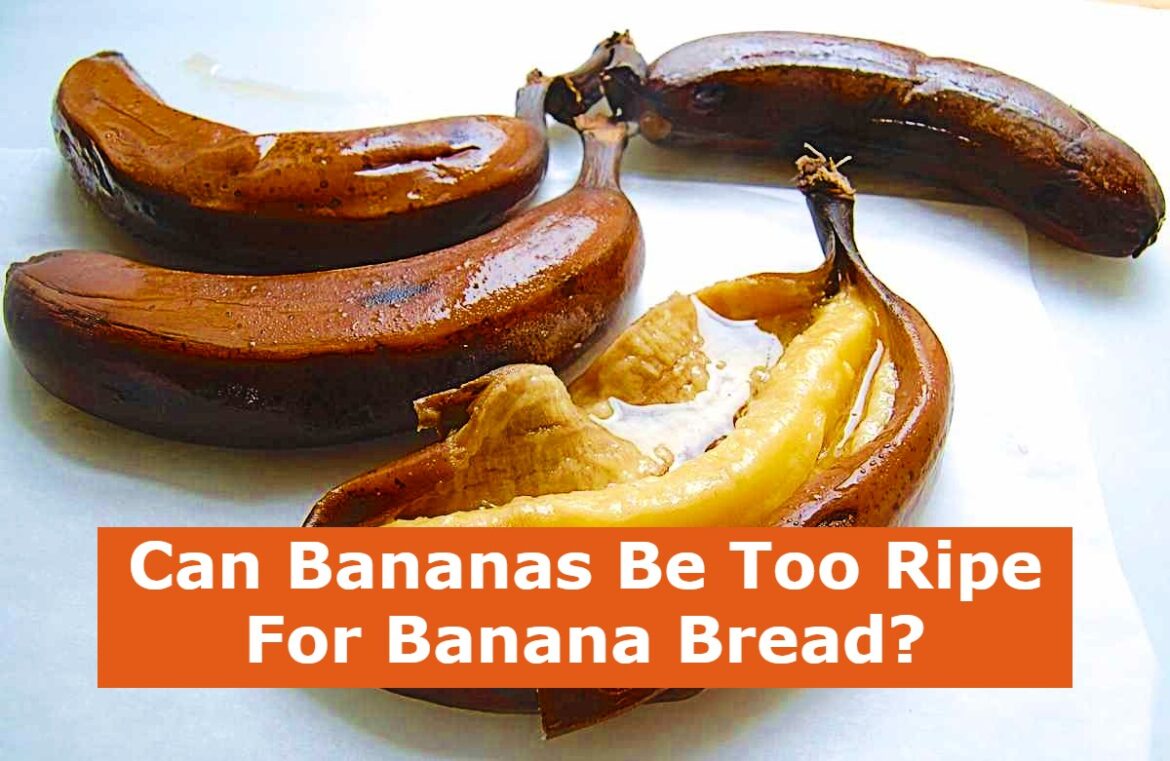If you’re planning on making banana bread, you might be wondering if the bananas you buy are ripe enough. Bananas can be mushy and bland when they are under-ripe, and they aren’t quite as sweet as you might expect. However, if you’re willing to wait a few days, you can enjoy the full flavor of your favorite banana bread recipe. Here are some tips to help you determine if your bananas are ready for use.
Ripe and rotten bananas should be avoided. Rotten bananas will give off a foul odor and will smell fermented. You may also notice a leakage of liquid. In addition to these signs, the bananas should be a little soft and the peel should turn black. While this isn’t the most exciting thing about bananas, it’s a good indicator that they’re ready for baking.
The banana has been around for more than a hundred years, and although it’s one of the oldest fruits known to man, its ripening process is still fairly fast. Typically, you’ll be able to ripen a few bananas in 24 hours or so. For the most part, however, you’ll need to allow a few days for your bananas to reach their best ripeness.
As with any fruit, there are some tricks to speeding up the ripening process. For example, ethylene is a gas produced by fruits and vegetables that speeds up the ripening process. If you keep your bananas in a paper bag filled with apple juice or other fruits, they will ripen faster. Another trick is to place them in a warm spot such as the kitchen. This will help to boost the ethylene levels, which will help to ripen them.
Using a ripe banana in your favorite banana bread recipe is a great way to add a little extra sweetness to your baked goods. If you don’t have access to ripe bananas, you can always use sugar substitutes or salt. But you’ll need to experiment with different combinations to find the perfect balance. Using a combination of bananas that are too ripe and too bland will make for a denser, less moist banana bread.
While overripe and under-ripe bananas are both fine for use in banana bread, it’s a tough call. Overripe bananas are the preferred choice for some, because they’re softer and more palatable, while underripe bananas can leave your baked goods with a lackluster flavor. Choosing the right banana for your recipe can be a challenge, but with a little planning and testing, you’ll be able to create the perfect piece of cake, muffins, or ice cream.
If you’re interested in experimenting with overripe bananas, you can try mixing them with some sugar and cinnamon to see if that combination works. Unlike most fruits, bananas do not have to be stored in the refrigerator for long periods of time. Frozen bananas can be kept for a week, or even more. When ripe, they will have a very dark brown interior and will turn black in the freezer.
